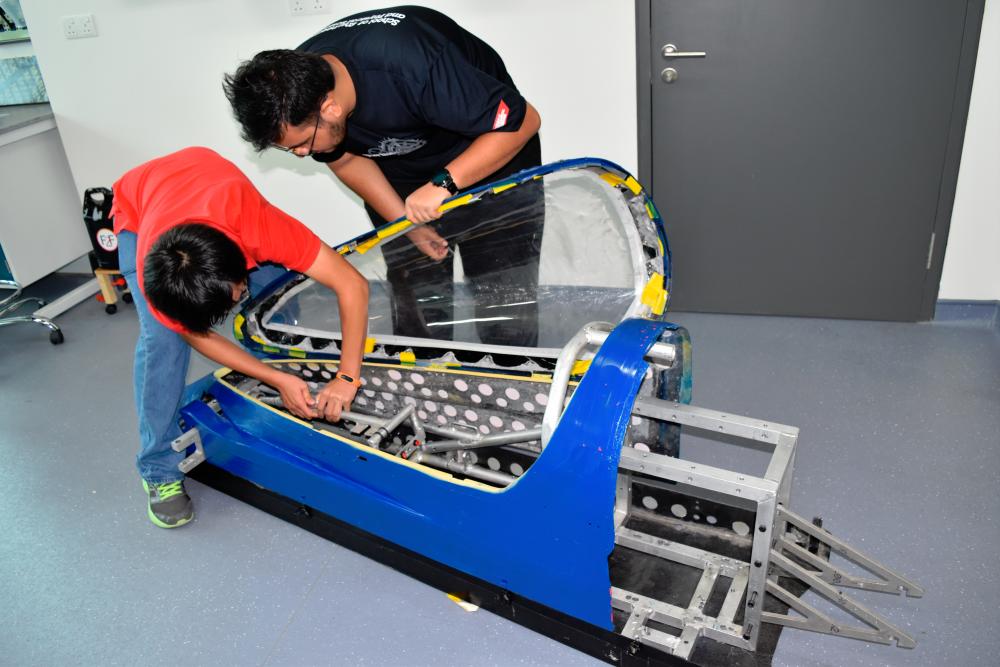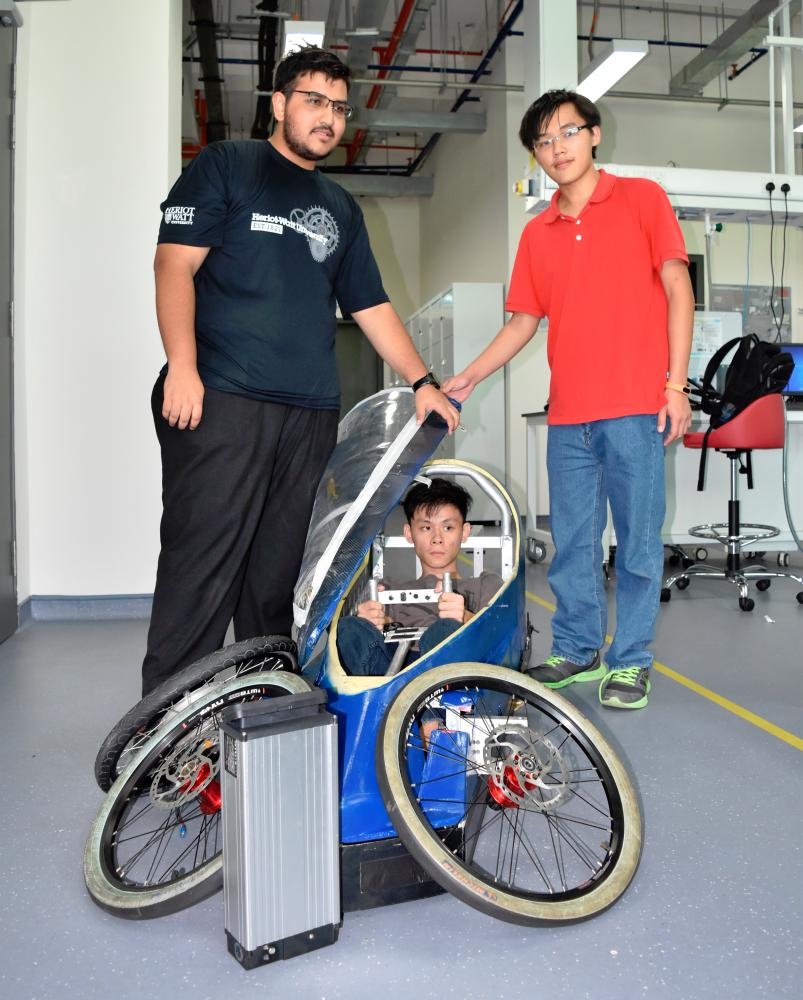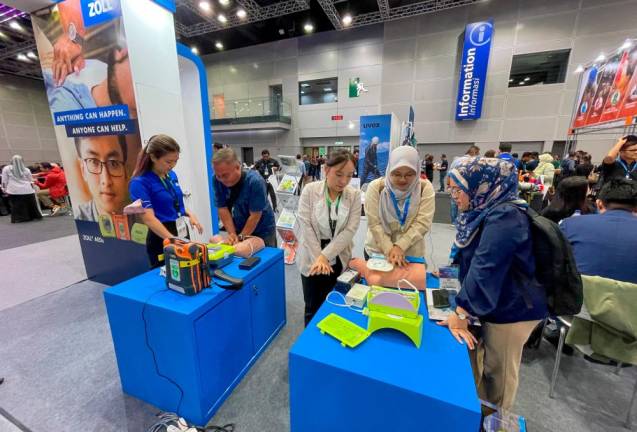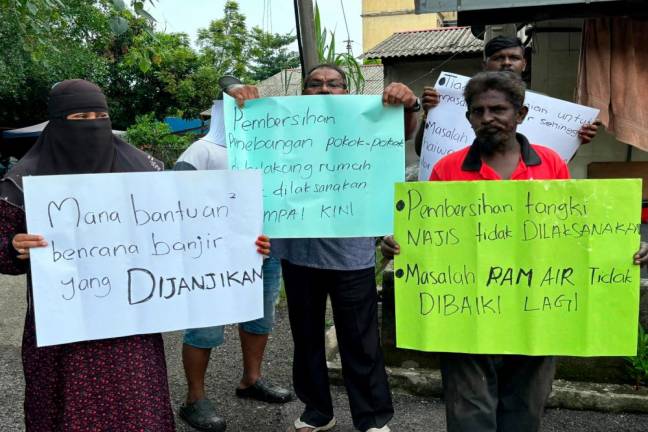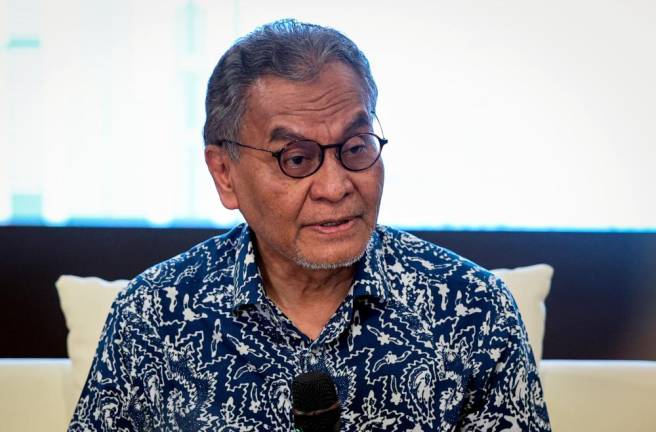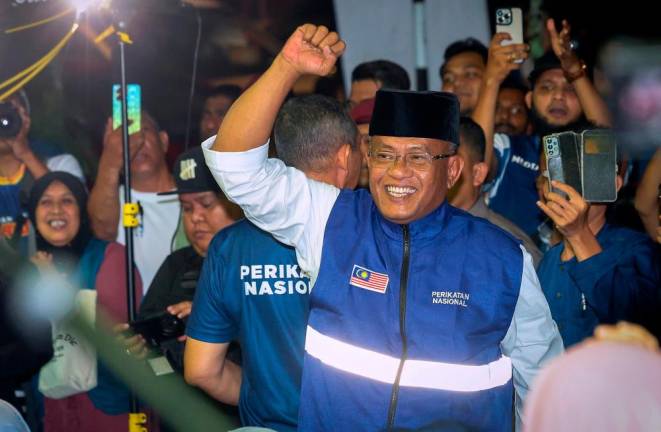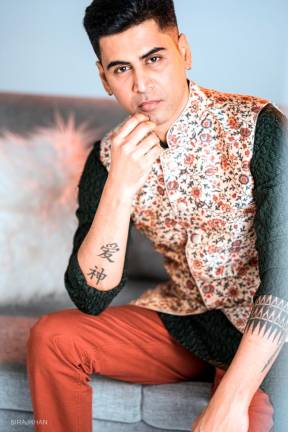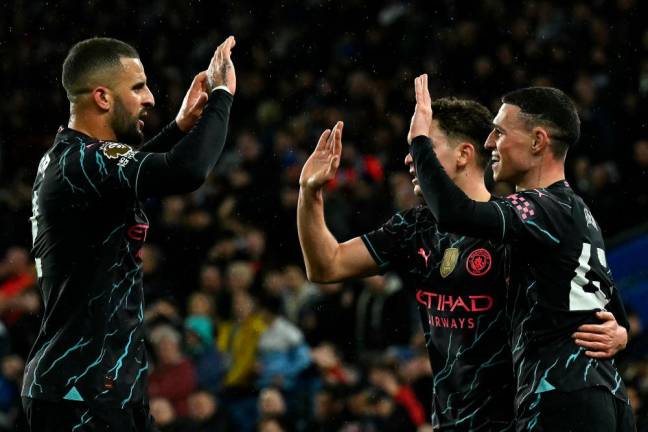BY AZLAN RAMLI
NO, that is not a new course or even a side business at that nice university in Putrajaya.
It is not exactly for profit either, and just five of its students are involved in making cars.
Well, actually just ONE car – that has only one seat in a very cramped cockpit fit for a petite occupant, has three skinny wheels, is powered by a wee electric motor, has no air-conditioning, audio entertainment, sat-nav, Apple CarPlay, Bluetooth connectivity, cupholders and none of the usual mod-cons you’d expect to be in a car.
Even the roof is a clear perspex canopy-cum-windshield.
Of the five students, three are from the university’s mechanical engineering faculty and the other two are chemical engineering students.
A lecturer is also part of the team as an advisor-supervisor – just in case.
Despite its minimalistic specification, the said car is quite special – those students have been losing sleep over completing “Herbie”, their little no-frills, light-as-the-tight-budget-allows, electric car that will take part in Shell’s upcoming Shell Eco-marathon Asia, the oil and gas brand’s global energy-efficiency competition.
Shell says the competition is at the heart of “Make the Future Live”, its own platform that “brings people and ideas into collaborate spaces, driving towards a lower-carbon energy future”.
It is held in Malaysia this year, and will involve participants from Asia Pacific and Middle East.
Shell Eco-marathon has been around for three decades (about a decade in Malaysia), and has seen thousands of high school and university students worldwide build ultra energy-efficient vehicles, in a variety of designs and using a spectrum of energy types.
This year, over 100 student teams from countries in the Asia Pacific and Middle Eastern region will compete, putting the energy-efficient cars they design and build to the test at the Sepang International Circuit (SIC).
Aside from Heriot-Watt University Malaysia, five other Malaysia teams from local universities will also take part in the competition.
Shell Eco-marathon Asia will include two key competitions this year. The longest-running competition is the Mileage Challenge where teams compete to see whose car could travel the farthest, on the least amount of fuel.
Last year, the Asian leg winning team’s car was efficient enough to travel 2,341 kilometres – about the distance from Kuala Lumpur to Yangon (Myanmar) – on just one litre of ethanol.
In addition, teams will have the opportunity to take part in a qualifier for the Drivers’ World Championship.
Matching the proven energy-efficiency of their car with the strategy, skill and speed of the driver, this is a race to see who crosses the finish line first without running out of their limited allocation of energy.
The top teams will then go for victory in the 2019 Drivers’ World Championship, to be held in July in London.
How Shell Eco-marathon Asia works
Teams of university/college or high/secondary school students build one of two types of cars – “Prototype” (futuristic and highly aerodynamic vehicles) or “UrbanConcept” (highly economical and innovative vehicles that resemble today’s cars).
From vehicle design to financing, teams manage their projects from start to finish, and they will then compete in three different categories, based on their selected energy source:
- Internal combustion engine – powered by petrol, diesel or ethanol (biofuel).
- Battery-electric power.
- Hydrogen fuel cell.
They must pass a detailed technical inspection before they are allowed onto the SIC track to compete.
The event will be held at SIC on April 29 to May 2.
The winning teams in both the Prototype and UrbanConcept category as well as in each energy category will receive a prize of US$3,000 (RM11,997) for their school.
UrbanConcept cars with proven energy efficiency may also qualify to test their drivers’ strategy and skill in the Drivers’ World Championship qualifier.
Off-track Awards
All participants have the chance to enter a selection of four off-track awards, in areas from communication to vehicle design.
An extra award is presented to the team that showed “the greatest team spirit and perseverance in the face of adversity”.
Winners will receive the respective prize money of US$3,000, as well as a trophy on stage during the awards ceremony.
